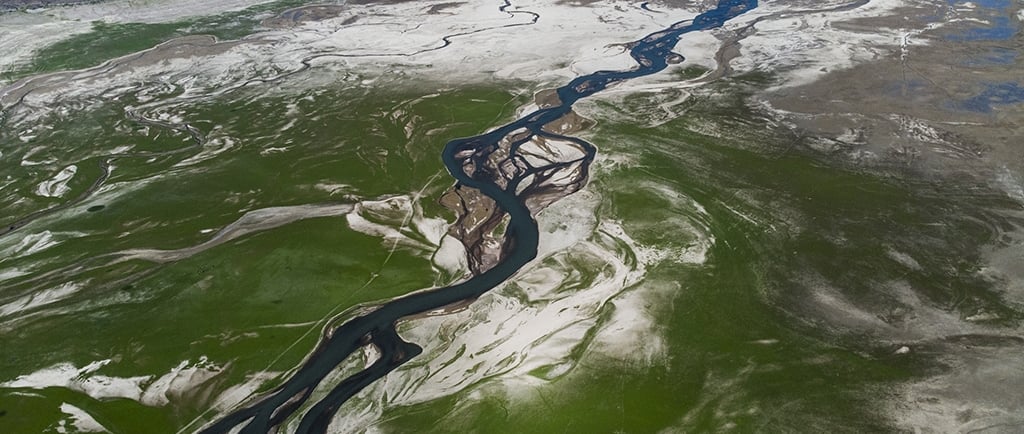Kyrgyzstan: Water Wars in Central Asia?
Kyrgyzstan's significant water resources, while crucial for its domestic needs, have become a source of geopolitical tension with neighbouring Central Asian countries, particularly over water allocation and hydropower development. Will these ongoing disputes over water rights hinder Kyrgyzstan's economic growth and stability, especially in its agriculture and energy sectors?
KYRGYZSTAN
Raymond Puentes
8/15/20243 min read


Kyrgyzstan possesses significant and unique water resources, with almost all of these resources being formed within its own territory, which is an advantageous hydrological feature. The country has substantial hydropower potential, with its rivers capable of generating approximately 174 billion kWh of electricity and a capacity of 19.8 million kW. The nation's water wealth is further highlighted by the presence of 6,580 glaciers, which store about 760 billion cubic metres of water.
Approximately 90% of water consumption is allocated to irrigated agriculture, while the remainder is used by industry, for the population's water supply, and in other sectors such as forestry, fisheries, and energy. Annually, Kyrgyzstan consumes around 10-12 billion cubic metres of water, but losses during conveyance can reach up to 2.3 billion cubic metres.
The country also has a significant number of lakes, reservoirs, and ponds, with a total area of 6,836 square kilometres, mainly located in high-altitude zones. These water bodies play a critical role in supporting the national economy, enhancing water and energy resources, and contributing to environmental protection.
Nevertheless, Kyrgyzstan’s substantial water resources are not only a domestic asset but also a point of contention with its neighbours. The country shares water sources with several Central Asian nations, including Uzbekistan, Tajikistan, and Kazakhstan, which creates tension over access to water resources. The Kyrgyzstan-Tajikistan border, for instance, has been a significant hotspot for conflicts, mainly fuelled by disputes over water and land resources. This situation deteriorated further after Kyrgyzstan allowed private land ownership, leading to Kyrgyz and Tajik settlements closely bordering one another.
These conflicts have had severe consequences for the region. Violent clashes between Kyrgyz and Tajik communities are not uncommon, often resulting in casualties and displacement. The instability along the border disrupts trade and economic activities, creating an environment of uncertainty that limits investment and development in the affected areas.
Water disputes between Kyrgyzstan and Uzbekistan have also been a recurring issue. While heavily reliant on Kyrgyzstan’s water resources for irrigation, Uzbekistan has frequently disagreed with Kyrgyzstan over water allocation. During the Soviet era, water-sharing agreements ensured a steady supply of water to Uzbekistan in exchange for energy supplies to Kyrgyzstan. However, these agreements became outdated after the collapse of the Soviet Union, leading to conflicts between the two nations.
Moreover, Kyrgyzstan’s plans to develop its hydropower sector have further strained relations with Uzbekistan. The construction of new dams and reservoirs in Kyrgyzstan threatens to reduce the flow of water to Uzbekistan, raising concerns about the potential impact on its agricultural sector. In response, Uzbekistan has applied economic pressure on Kyrgyzstan, demanding a halt to dam construction and seeking renegotiation of water-sharing agreements.
Kazakhstan, another country in the region, is also involved in water disputes with Kyrgyzstan. Like Uzbekistan, Kazakhstan relies on water from Kyrgyzstan for irrigation. Although the two countries have generally maintained good relations, disagreements over water allocation occasionally arise, particularly during periods of drought.
Consequently, the geopolitical tensions surrounding water resources in Central Asia significantly affect the population of Kyrgyzstan, with impacts extending beyond its borders. In agriculture, water scarcity and associated conflicts over water rights have led to crop losses and increased production costs for farmers. This has implications for food security and the general economy, as agriculture represents a large sector of Kyrgyzstan's GDP. The lack of clarity on water availability also discourages investment in modern irrigation systems and other technologies that could improve efficiency and productivity.
The energy sector, heavily dependent on hydropower, is another area where businesses face challenges due to geopolitical tensions. Kyrgyzstan's plans to expand its hydropower capacity have been countered by neighbouring countries, and thus the future of these projects remains uncertain. Delays in hydropower development could negatively impact the economy, as the availability and affordability of energy are prerequisites for business growth and overall economic development.


